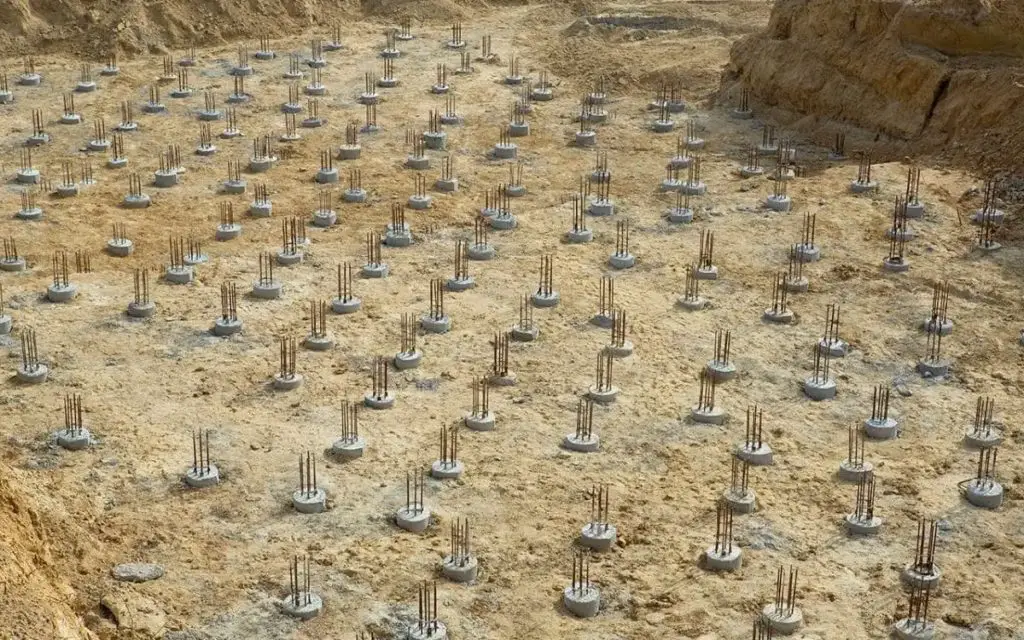Sulphate Resisting Cement is a hybrid cement formed to enhance concrete performance in areas where sulphate attack danger may be present.
Additionally, it increases the concrete’s resistance to deterioration and structural failure in the majority of hostile settings.
In this article you’ll learn:
So, if you’re ready to go with the Cinder blocks, this article is for you.
Let’s dive right in.
Introduction to Sulphate Resisting Cement:
In Australia, there have been incredibly few reports of severe sulphate soil and groundwater conditions.
Concretes with or without protective membranes were employed to satisfy the 100 years of design life since aggressive sulphate and carbon dioxide in groundwater.
It was discovered in some sections of the Parramatta Rail Link in Sydney’s Lane Cove Valley.
Sulfate Resisting Cement is a variety of Portland Cement that contains limits on the amounts of tricalcium aluminate (C3A) and (2C 3A + C4AF) to prevent the development of sulfate salts.
Sulfate attack on the concrete is less likely when sulfate salts are reduced.

Composition of Sulphate Resisting Cement:
Tricalcium aluminate levels in sulfate-resistant cement are so low that very little calcium aluminate is produced upon hydration.
With the application of sulfate-resistant cement, the formation of calcium sulpho-aluminates is generated owing to the reaction of calcium sulphoaluminate and sulfate salts.
Due to their extreme expansibility, sulphate aluminates harm concretes the most.
Properties of Sulphate Resisting Cement:
| Property | Values |
| Fineness | 280+ or -10 sq m /kg |
| Setting time | |
| Initial | 80 min |
| Final | 240 min |
| Soundness | |
| Lechatelier (mm) | 2 (max) |
| Autoclave | 0.25(max) |
| Compressive strength | |
| 3 days | 30 + or – 3 |
| 7 days | 45 + or – 3 |
| 28 days | 65 + or – 3 |
| Tri calcium aluminate | 0.035 |
| Magnesia | 0.02 |
| Loss on ignition | 0.02 |
- This sulphate-resisting cement offers the greatest resistance to chloride ions, reducing the chance that reinforced steel would corrode.
- It offers superior structural integrity and concrete performance in sulphate- and acidic-rich conditions.
- Additionally, it is easier to deal with and pump.
- Concrete strength at later ages has been greatly increased by this cement.
Advantages of Sulphate-resistant cement:
- The sulphate resisting cement offers great defence against their production and increases the resistance of concrete to sulfate assault.
- High compressive strength is achieved through cost-effective concrete mix design.
- A very low hydration temperature prevents shrinkage fractures.
- increases the lifespan and toughness of structures in harsh environments.
- It enhances steel’s ability to resist corrosion by guarding against sulfate assault.
Disadvantages of Sulphate Resistant Cement:
- Where chloride attack is possible, sulphate-resistant cement is not recommended as it will cause rebar to rust.
- Use ordinary Portland cement with a C3A between 5 and 8 if both chlorides and sulfates are present.
- The curing procedure should be carried out carefully and correctly for at least 8 to 10 days.
- The use of it in marine buildings is not advised.
Applications for Sulphate-Resisting Cement:
The following types of constructions are advised to use sulfate-resistant cement:
- Foundations.
- Piling works.
- Construction in groundwater or soils that contain more than 0.2 or 0.3% g/l of sulphate salts, respectively.
- Such concrete surfaces as bridge piers, aprons, and surfaces in tidal zones are subject to alternating wetness and drying
- Plans for treating effluent.
- Towers for cooling.
- the construction of sea walls, breakwaters, tetrapods, and other coastal defences.
- Construction along the coast.
- Chemical businesses, sumps, water storage, and drainage projects.
- Appropriate for underground construction projects where sulphate is present in the water and soil.
Also read: High Performance Concrete | Rapid Hardening Cement | High Alumina Cement
Conclusion:
The sulphate resisting cement is determined by its physical and chemical resistance to penetrating sulfate ions.
The water-cement ratio and cement quantity are both directly related to the physical resistance of the concrete.
The cement matrix’s ability to withstand harmful sulfate reactions is connected to chemical resistance.
Sulfate-resisting concrete has a low water permeability that can be made using a sufficient quantity of sulfate-resisting cement (Type SR complying with AS 3972) and a low water-cement ratio.

Related Posts
Rock Quality Designation(RQD): Building Strong Foundations
Spread Footing
Masonry Cement
Plain Cement Concrete
Concrete Efflorescence
Concrete Pile
Stepped Footing
Fineness Modulus of Coarse Aggregates
Difference between Condo and Apartment